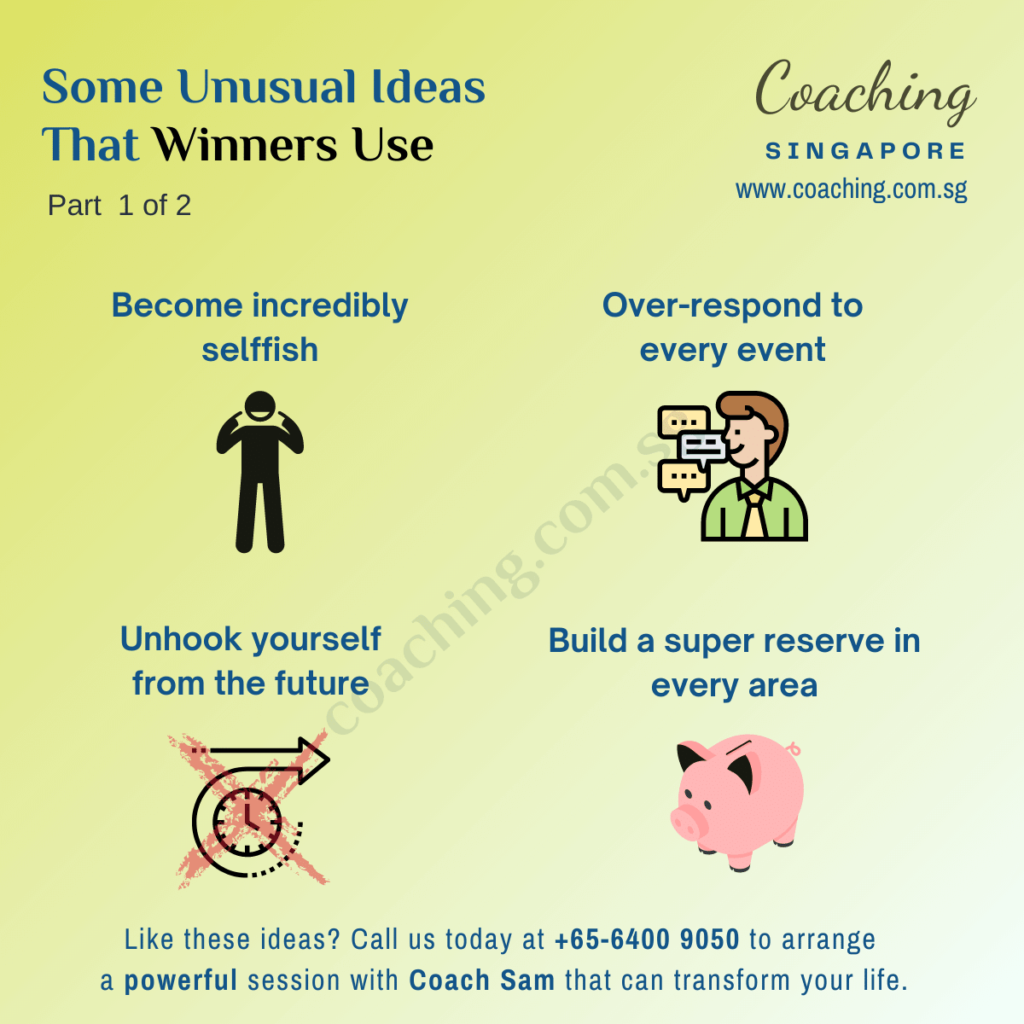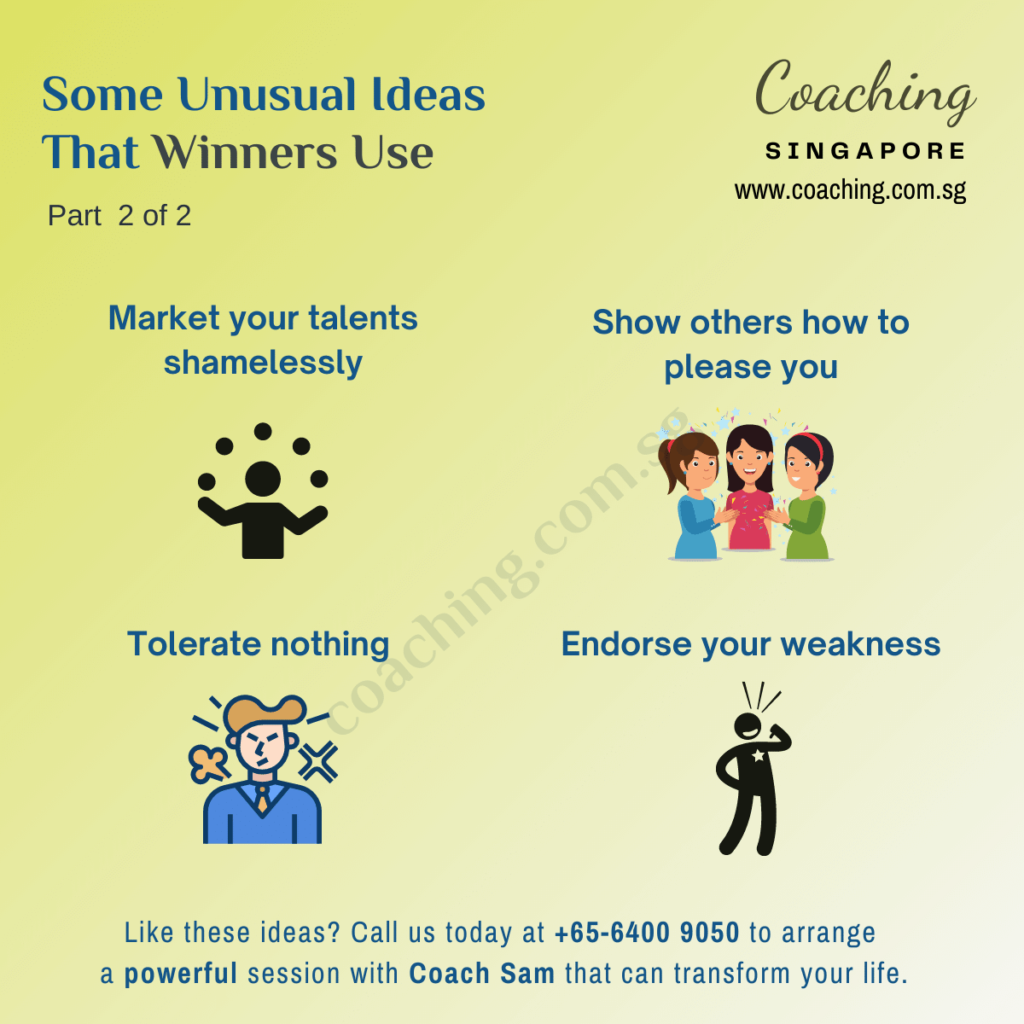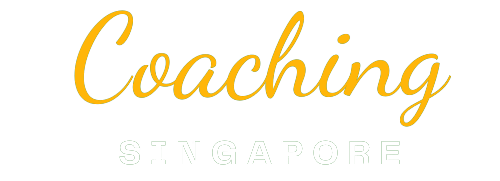Home » Emotional Resilience » 11 contrarian ways to make your life work for you: Unusual ideas that winners use
11 contrarian ways to make your life work for you: Unusual ideas that winners use

- Author: Coach Sam
I love to look at life and see what works and what doesn’t.
Sure, many traditional ideas exist for a reason – they are grounded in logic and are proven right time-tested.
But today, I want to discuss a few ideas that are in the face of conventional teaching and some societal norms as to what is “agreeable”.
Here is a list of all the contrarian ideas that we will be covering in this blog:
- Become incredibly selfish
- Unhook yourself from the future
- Over-respond to every event
- Build a super-reserve in every area
- Market your talents shamelessly
- Eliminate delay
- Tolerate nothing
- Show others how to please you
- Endorse your weaknesses
- See how perfect the present really is
- Sensitize yourself
1. Become incredibly selfish [ vs living for others all the time, being a martyr, too generous, or available ]
Whoever you are, claim your own at any hazard. – Walt Whitman
Selfish… It’s a little adjective that can carry a big load.
For the sake of your personal and professional success, you need to grasp a new way of viewing selfishness.
Holding on to, and being ruled by, other people’s definitions of selfishness have probably created a barrier that you’ll need to break.
Because fortune really does favor the brave, and the brave are guided by their own lights.
This is just as true about small concerns as it is about larger ones.
And you can strip out Webster’s phrases about disregard of others, and operating at the expense of others.
Selfishness, as defined for our purposes, ultimately allows you to be more generous and supportive of others than you have ever been before.
How to know you’re making progress with this principle?
- You’re able to put yourself first.
- You attract others who already know how to be selfish.
- You may find that you need less from others.
- You embrace the notion that “if it’s good for me, it’s probably going to benefit others.”
- You feel more independent, less “pulled” by your roles.
- You find yourself being a lot more generous because you can afford to be.
- You get a lot more of what you want, more often.
2. Unhook yourself from the future [ vs being super future goal and vision oriented all the time, sacrificing too much in the present for it ]
Attraction works in the present, not in the future.
The supreme value is not the future but the present. Whoever builds a house for future happiness builds a prison for the present. – Octavio Paz
When we aren’t worrying about the past, we stew and sweat about something we can’t possibly know what’s coming next.
“If this happens, what’ll I do?… “If that happens, I’ll have to… Like Abbott, we’re constantly someplace else.
But the finest place to be, the best possible place to hang out, is right here in the present moment.
It’s been said that living in the present moment is the highest form of sanity.
I want to add to that: You are most attractive when you’re living in the present moment not living in the future, or striving for it, or trying to repair the past.
A smooth, secure, present-time orientation is the sure way to attract a better future.
3. Over-respond to every event [ vs reacting, often too little too late, even though things could have been fixed much earlier ]
Is life not a hundred times too short for us to stifle ourselves?
– Friedrich Nietzsche
Overrespond? To every event? Immediately? Yes. Really.
More often than we allow ourselves to.
One of the things that make you irresistibly attractive is when you evolve.
Of course, you can’t evolve unless you change. And you can’t change unless you learn to respond to your environment.
Your environment is full of clues: Learn to over-respond, and you’ll become more responsible to the process of, and opportunities for, creating a more attractive and fulfilling life.
But there’s a vital distinction here: over-responding versus overreacting.
As we grow up we learn and this is especially true of men that we ought to stifle our responses to immediate stimuli in order to be “in control”.
It’s a question of not being pushed around by things.
Not flying off the handle, not getting upset. But upset feelings are powerful and are extremely valid as teachers.
What happens when immediate responses are stifled is that people lose track of the full measure of their feelings, along with many things they might have learned from the tendencies revealed by those responses.
In order to appear competent and in control, they end up cultivating internal numbness, a widening distance between their minds and their bodies.
Trying to prevent getting stuck in an overly reactive mode, they end up stuck in a response-containment mode, which blocks self-knowledge.
And self-knowledge is key to evolving.
- What if you could unlearn the operating styles that keep you stuck?
- What if, by risking a little overreacting, you could become someone who picks up on all possible environmental clues?
- Wouldn’t that give you valuable information?
- Wouldn’t that put you in a position to do great things with all your opportunities?
It can happen if you go beyond solving or handling your problems and start using them as a chance to grow.
4. Build a super-reserve in every area [vs just in time, 0 waste, super lean]
Having enough is not nearly enough for you to be irresistibly attractive.
The supreme value is not the future but the present. Whoever builds a house for future happiness builds a prison for the present. – Octavio Paz
You’ve already been asked to try some new ideas about selfishness for size. I hope they feel comfortable because this is a closely related topic. Let’s call it “To Have and Have Not”.
And let’s establish that we’re talking about both material and nonmaterial things: Love as well as money; time, happiness, and space as much furniture, houses, and cars; leisure as much as work.
You don’t want to be greedy, and you don’t want to be needy.
You just want to be so well supplied that you will be able to lead a terrific life far enough beyond the reach of scarcity.
Scarcity-based worrying is a leading cause of fear.
You can’t totally eliminate fear from your life.
Nor would you want to; it’s a valuable teacher, after all.
But you can keep fear from being an overwhelming, personality-distorting presence in your life.
The starting point is realizing that having enough to get by is simply not good enough for you.
What can you do about that realization?
If it’s true that “the rich get richer and the poor get poorer,” if it’s true that “them that’s got are them that gets,” how do you put yourself on the side of abundance?
Like so many things in life, it’s a combination of attitude and skill.
While you begin building those skills, try on this attitude: You deserve a constant, secure supply of everything it takes to have a satisfying life.
Now, act on that attitude until it’s a way of life and not just a hope-charged motto.
You will begin attracting plenty of those things you want.
5. Market your talents shamelessly [ vs waiting for others to acknowledge or discover you, being too self-effacing, shy, embarrassed to let people know about your best facets, modest or reserved ]
When you add value because you enjoy it, people are naturally attracted to you.
Give what you have. To someone, it may be better than you dare to think. – Henry Wadsworth Longfellow
I’ve said a great deal about claiming your own identity and building your own riches, and I stand firmly behind every word. it’s also vital to remember that life is a team sport, and always will be.
It’s easy enough to see this if you work in a structured environment and/or if you’re part of a marriage and a family.
But it’s just as true, and sometimes even more so, when you are entrepreneurial and/or self-employed, or if you’re single.
Without the steady support of customers and clients, everything can come quickly tumbling down.
- How does this principle attract that kind of support and ensure that it will last?
- How does it strengthen and validate the importance of who you are and what do-within your family and at your place of work?
The answer: by coaching you to fulfill all expectations and then to do at little or no cost to yourself, and with a payoff of joy.
More in every key relationship of your life, the success-building thing to do is to add value, to go beyond everyone’s expectations, but to do it in ways that are relatively inexpensive to you (or even cost you nothing at all).
In business, you need to add value to all of your customers, which will make them feel there’s no one better to do business with than you.
To have a very attractive personal life, you simply have to add value to everyone close to you, which will make them glad they are close to you and keep them interested in staying close.
You don’t have to woo and seduce, and you don’t need to encourage codependency.
You adopt a style of relating that keeps YOU feeling positive.
In short, you add value to others for no expectation at all just for the joy it gives you.
Bees do it right.
They do their thing, going from flower to flower, collecting and spreading pollen as they go.
In a way, they’re just in the honey-making business, working to support themselves and the other members of the hive.
But they also create a by-product.
They add value to the rest of the world through the pollination of trees and flowers.
It costs them nothing, yet the benefits radiate out to practically every living thing on the planet.
If insects smaller than your thumb can do that much, think about what you could do!

6. Show others how to please you [ vs waiting for them to find out by themselves ]
We’ve all heard the famous Maya Angelou quote, “Believe people the first time that they show you who they are”.
It is probably one of the most profound pieces of wisdom ever to be uttered by a human being on how we should pay attention to what people tell us about themselves without uttering a single word.
- But what about what “we” are showing people about ourselves?
- What is your energy telling people about you?
- What is your attitude saying about you and how you view life?
- What is your self-care or lack thereof telling people about how you treat yourself and from that how they should treat you?
7. Tolerate nothing [ vs suffering silently, putting up with waste, suppressing your inner instinct and urges to say or do something ]
We are told that being tolerant is a good thing.
While that is true socially, in our personal lives, especially with things and systems, we can be a lot more unforgiving.
By that, I mean we can over-respond (see Idea #3 above) and try to fix, avoid or settle anything that bothers us even the slightest.
This is the opposite of ignoring things that have come to our attention or trying to be numb to what affects us.
So what are tolerations?
They are the things we put up with, the frictions of life.
The stuff that exists in our life just under the radar – the stuff that annoys us yet is not pressing or important enough to take care of.
Examples: the piles of papers on the desk, the dirty backseat in the car, the unresolved disagreement that lies under the surface of conversations with a coworker, the project that sits one step away from incomplete.
Individual tolerations are typically small things that added together create major friction in your life.
Imagine your computer running many utility programs.
Each is using just a few fragments of memory, but open enough of them and suddenly your computer slows or even freezes.
Most people are, at any point in time, carrying around dozens – perhaps more than a hundred – tolerations.
That’s a lot of open programs in the brain!
How do tolerations affect us?
Consider the analogy of the frog that remains in a pot of water where the temperature is slowly raised to boiling.
The frog’s body temperature adjusts as the heat is increased and he doesn’t even realize he’s in danger.
We, too, can grow accustomed to our environment even though it may not be a good idea to remain.
We can be blind to see the clutter in our brains, relationships, physical space, commitments, and so on.
What are you tolerating?
If you removed a few tolerations, how much better would you feel? Think about it. One less burden to carry on your shoulders.
More space and energy and capacity to focus on what is really important.
More space to feel happiness and contentment rather than the anxiety and stuckness that often accompany tolerations.
8. Endorse your weaknesses [ vs trying hard to always show only the brightest side of yourself, appearing too perfect ]
Our role models – in real life and in fiction – are often near-flawless.
But the fact is, as human beings, we have a lot that is not perfect in us.
In admitting to ourselves, and selectively, to people around us as well as the world at large, what we are not good at, or are imperfect, we open ourselves to realizing what we are indeed excellent in.
The willingness to admit your weaknesses and your vulnerabilities, in the right situations, is very powerful.
Not only does it disarm others, and get them to feel safe enough to open up details about themselves, it also can make you more likable.
Especially in situations of stress or conflict, you can even joke about it to ease tension.
But if you keep every shortcoming to yourself or worse, are unaware of your own faults, then you are setting yourself up to be blindsided.
Bill George – A Harvard Business School professor has a master class series about authentic leadership.
Bill talks about the dangers of only putting your best foot forward.
Here’s what he had to say:
“I lead small group discussions with my students at Harvard.
Everyone tells their life story.
They share the good, the bad, and the ugly.
We also talk about how they ‘lost their way’. It’s liberating for everyone. It’s a relief to hear someone admit they’re not perfect.
It allows me to share a similar experience, and how I bounced back”.
That’s the power of being authentic & endrossing your weaknesses.
Not only are you free from the burden of being pretentious & being perfect, you also manage to build deeper relationships & connect with people easily.
9. Eliminate delay [ vs being too patient, scared to act, making excuses ]
We are all taught to be patient.
Yet, I exhort you to do the opposite – sometimes.
Healthy impatience is a good thing, much needed for progress to happen in time.
So when I say to you, eliminate delay, I mean, fix things that need to be fixed – immediately.
Invest in acquiring whatever you need to save precious time in getting the most important or pleasurable things in your life done.
Perhaps unusually for a coach, I enjoy listening to excuses. Of course, I will challenge the excuses that my clients offer until they see those excuses for what they are.
However, I do love to hear the full extent of the stories that people will tell themselves to avoid doing the difficult things which they know they need to do.
Be it fear, limiting beliefs, or trying to be perfect.
It’s not that I live a life free from excuses.
In fact, I often enjoy comparing the excuses my clients have offered me with the great tales I have told myself over the years.
One of the wonderful things about excuses is that when you finally move past the excuse; you often look back and have a good laugh at what you were telling yourself.
But as funny as excuses can be, they are only funny when you have moved past them i.e. you have stopped believing them.
Because as long as you are allowing an excuse to hold you back, it is a major problem.
Because while you delay, time does not. Life is a constant journey where you strive to improve yourself and your circumstances.
Do you realize that if you could reduce or eliminate delays by 50%, you could reduce the fluctuations in your processes by as much as 80%?
Therefore finding and eliminating delays is a primary objective for improvement.

10. See how perfect the present really is [ vs always looking for faults to fix or feel bad and complain about. What we appreciate, appreciates. Attitude of gratitude, even when we want to improve things in the near and distant future ]
The real voyage of discovery consists not in seeking new landscapes, but in having new eyes. – Marcel Proust
There’s something good in every day.
It doesn’t always feel that way and that’s ok.
Some days the rollercoaster of living absorbs all of our attention for us to notice anything else.
Other times we’re just too tired to care.
It’s hard to pick up the subtle signs of bliss when the noise of everyday life drowns out the quietness within you.
And yet, it’s there, waiting for you to listen.
It can be anything: a happy event, a simple pleasure, or a shift in your outlook on life.
I mean, how amazing is life when every moment becomes an opportunity to learn, play and discover?
Seeing the world with new eyes is contagious.
It’s like looking at your surroundings through a photographic lens: there is no need to get so absorbed in taking that perfect picture that the subject – your mouth-watering meal – is cold by the time you take your first bite.
You can find beauty in every situation by bringing your attention to everyday sensations.
Notice how good that cappuccino tastes after a night of tossing and turning.
Close your eyes and listen to your favorite song, the birds chirping in the trees, or the heartbeat of someone you love.
Stop and smell the roses – literally. Slow down, sharpen your senses and live in the moment.
11. Sensitize yourself [ vs being numb, tolerating, ignoring, suppressing, forgetting, ignoring little triggers and inklings ]
The more you feel, the more you’ll notice.
And respond to the many opportunities in the present.
Nobody likes unpleasant experiences.
But if “unpleasantness” is a matter of your interpretation, then you have a degree of control.
But most of us lose this control as we don’t confront the root cause of our unpleasant experiences, majorly because of the pain, it brings along.
Though there is a silver lining in practicing the art of sensitizing yourself to the emotions & feelings that you experience.
You develop resilience.
You don’t have control if your interpretations are on autopilot, dictated by old patterns of thoughts, beliefs, and emotions that you are incapable of cognizing, and therefore examining and questioning.
Meditation helps solve this problem.
Freeing yourself from a warped interpretation of experience, which often leads to suffering and emotional upset, means understanding the elements that are influencing your interpretation.
As a quiet, inward-looking exercise, meditation increases your capacity to identify and understand subtle objects, these powerful “influencers” of your interpretation of things, and therefore the foundational building blocks of your experience!
That’s pretty powerful stuff.
I have also written a blog on meditation which can be complimentary for the topic in hand, click here to check it out.
Comment: Is there any contrarian mental model that you personally use to make your life work for you?
If yes, then do let me know about it in the comment section below. I would love to hear your stories.
Share This Post, Choose Your Platform!

One Response
Where there is a will, there is a way.